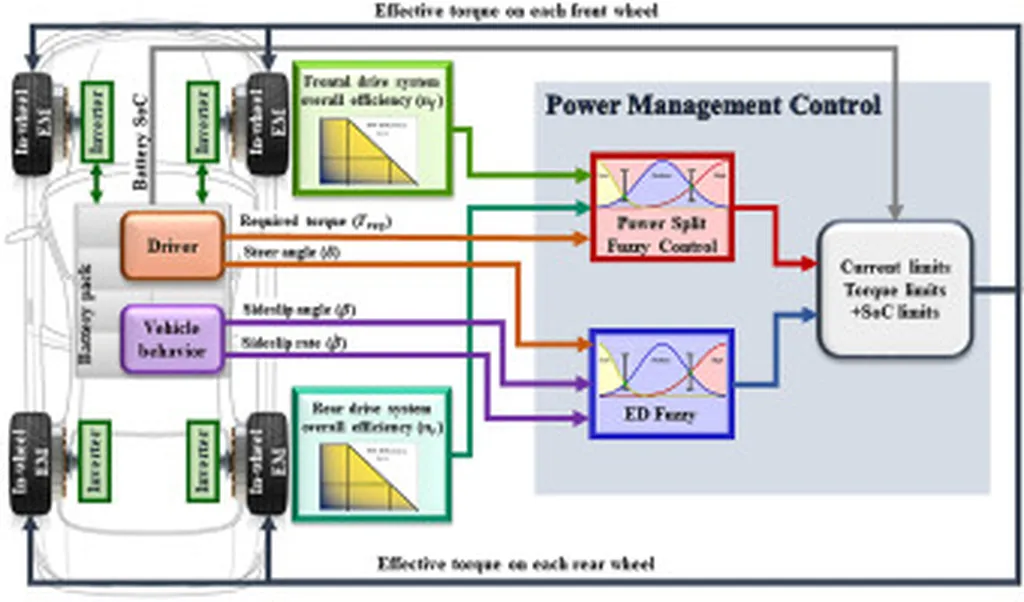In the quest to make electric vehicles (EVs) more efficient and sustainable, researchers have turned to a combination of advanced control strategies and optimization techniques to enhance regenerative braking systems. A recent study published in the journal “Mechanical Engineering Frontiers” (formerly “Frontiers in Mechanical Engineering”) presents a novel approach that could significantly improve energy recovery and vehicle stability in EVs.
The research, led by Chunhui Liu, integrates Type-2 fuzzy logic control with Particle Swarm Optimization (PSO) to optimize the distribution of braking force in EVs. This model-based simulation framework dynamically manages braking force allocation, ensuring a delicate balance between high energy recovery and vehicle stability.
“Regenerative braking control technology has been widely implemented in electric vehicles to enhance energy recuperation efficiency,” Liu explains. “However, the distribution of braking force, particularly for the front axle motor, often fails to achieve an optimal balance between high energy recovery and vehicle stability.”
The proposed strategy employs a Type-2 fuzzy controller to manage braking force allocation dynamically, while PSO optimizes the fuzzy rule parameters to improve overall system performance. Simulation under New European Driving Cycle (NEDC) conditions demonstrated that the optimized control strategy increases the driving range to 396 km on a single battery charge—an improvement of approximately 15.8%.
“This approach offers a practical and scalable solution for enhancing the braking performance of EVs and contributes to the broader goal of reducing energy consumption and emissions,” Liu adds.
The regenerative braking ratio coefficient exhibited a dynamic range of 0.08–0.63 during a 600-second operational period, indicating a responsive and adaptable control mechanism. The experimental results confirm that the proposed fuzzy-PSO-based strategy effectively balances braking safety with energy recovery.
The implications of this research are significant for the energy sector. As EVs become more prevalent, improving their energy efficiency and reducing their environmental impact are critical goals. The study provides new insights into optimizing EV braking systems for improved environmental and economic outcomes.
“This research could shape future developments in the field by offering a more efficient and sustainable approach to regenerative braking in EVs,” says an industry expert. “The combination of Type-2 fuzzy control and PSO optimization presents a promising avenue for enhancing energy recovery and vehicle stability.”
As the world continues to transition towards cleaner and more sustainable transportation, innovations like this one will play a crucial role in shaping the future of the energy sector. The study not only advances our understanding of regenerative braking systems but also paves the way for more efficient and environmentally friendly EVs.

